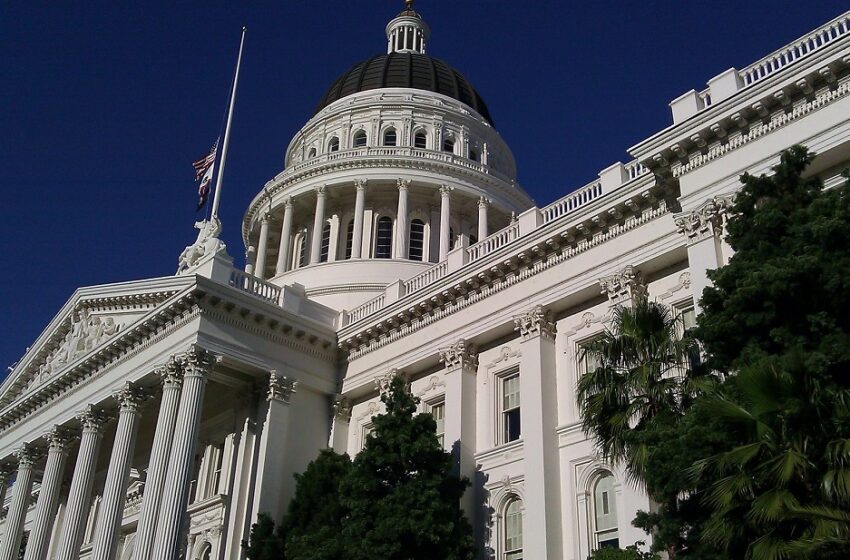California Assembly approves anti-caste discrimination bill

In a historic move, the California Assembly Monday passed a bill strengthening civil rights protections against caste discrimination by an overwhelming 50-3 margin.
Senate Bill 403 bill, which cleared the Senate in its original form, goes back to that chamber for a re-vote before heading to Gov. Gavin Newsom’s desk for his signature.
Newsom’s assent will make California the first US state to bar caste discrimination.
Supporters of the bill included the only two South Asian Americans in the state legislature — Ash Kalra and Jasmeet Bains.
“I appreciate every Assembly member who voted in support of SB 403 today. I thank them for their courage in joining me on this journey of enshrining in our state laws protections against caste discrimination,” said the bill’s author, Senator Aisha Wahab, the first Muslim and Afghan American elected to the state legislature, after the vote.
READ: California State Senate passes caste discrimination bill (May 12, 2023)
Previous changes in committee de-emphasized “caste” in the bill’s language, but the measure withstood months of campaigning by critics who called on lawmakers to remove the word or kill the bill in its entirety.
Lawmakers chose to put aside arguments that the bill would unfairly target South Asian Americans due to stereotypes linking caste with India and Hinduism, according to the Sacramento Bee. Instead, they backed progressive legal scholars and Dalit civil rights group, Equality Labs.
The bill’s supporters contend that clarity in the law is needed for a state that is seeing a growing number of South Asian Americans in sectors like Bay Area tech, housing, and employment.
READ: California caste bias bill clears Senate panel (April 27, 2023)
They say there’s no point pretending that caste discrimination hasn’t made it’s way here, and naming “caste” secures clarity in investigations and courtrooms where officials are often unaware of what the system is.
“California is still a state that stands for civil rights,” said Thenmozhi Soundararajan, executive director of Equality Labs, among a crowd of cheerful supporters. She notes the death threats reported by activists and Wahab.
“I think the opponents lead with ‘caste doesn’t exist’ and then lead with political violence, and lead with insinuation and fear and bigotry. That won’t get you very far in California.”
In June, Assembly members Alex Lee and Evan Low of the Asian American Pacific Islander Caucus requested the Assembly Judiciary Committee sideline caste as a subcategory of ancestry or pause the bill for further study.
The committee approved the change on July 5, after Wahab had stripped the bill’s background information on South Asia and the caste system. But the opposition maintains the revisions to the bill don’t go far enough.
READ: Seattle becomes first US city to ban caste discrimination (February 22, 2023)
“So long as caste is equated with India in the public imagination and the state of California requires public schools to teach caste as something unique and inherent to India and Hinduism, ‘caste’ will always be associated with South Asians,” stated Samir Kalra, Hindu American Foundation’s (HAF’s) Managing Director and co-counsel, who testified before the Assembly Judiciary Committee in July.
“The specific inclusion of the word (caste) under ‘ancestry’ will be used to stigmatize and profile us as a matter of law,” he added after the hearing.
Among the three opposing votes, Assembly member James Gallagher R-Yuba City, was the only one to speak on the floor.
He cited concerns about equal protection under the law for some religious groups, which some lawmakers have previously said they would leave up to the courts.
The other two no votes were Assembly member Vince Fong R-Bakersfield and Megan Dahle R-Redding.
Opponents of the bill deny any ties to extremism and argue that they’ve left behind caste in South Asia.
In a press release, HAF Executive Director Suhag Shukla condemned the decision and pointed to over two dozen abstentions in the final tally.
“Fifty California legislators chose to side with anti-Hindu hate groups rather than showing moral courage and upholding the Constitution,” Shukla said.
“When a state legislator pushes a law with the intent of targeting an ethnic community, it’s not only racist, it’s unconstitutional. We will explore every option to protect the rights of Hindu Californians.”
Wahab introduced the bill in March a few weeks after Seattle became the first city in the US to specifically ban caste discrimination.
On February 24, the city council voted 6-1 to approve the legislation, proposed by Council Member Kshama Sawant, a socialist and the only Indian American in the council, to ban caste-based discrimination in the city.

